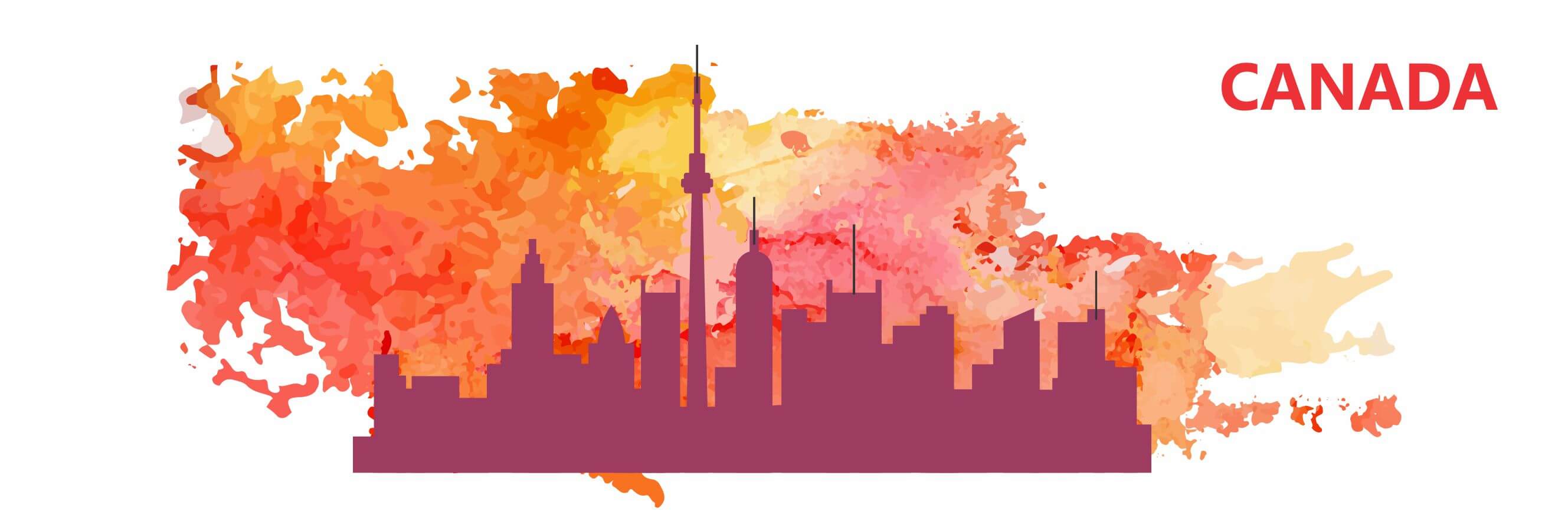
Why study in Canada?
Ample number of collaborative programmes offering hands-on learning combined with a more theoretical approach makes Canada on the best destinations to pursue tertiary education overseas. The Canadian institutions offer tailored programmes, and these courses may differ from campus to campus, but the ultimate goal is to provide service & support to ensure success of the students.
Another reason that makes Canada a dream education destination is that some international students who have graduated from Canadian Institution are allowed to apply for permanent residency visa without moving out of the country. Also, it�s a fact that over 90% of students who graduate from Canadian institutions get employed in their field of studies within 6 months after graduation, which is why studying in Canada is said to be an all-encompassing experience.
Various reasons to study in Canada are:
Canada is an enclave of diverse people, lifestyles and majestic landscapes, and is one of the safest destinations for pursuing education. A multicultural country with easy access to education and affordable living, thousands of international students flock to Canada each year to study in Canada. Moreover, a number of Canadian institutions are involved in international research partnerships to study and address major world issues. Another beneficial aspect of studying in Canada is The 'Walk Safe' programs that help people access public transportation during late hours.
Visa requirements
In Canada, a student visa is often referred to as a 'study permit'.
It is important that you make sure you have the correct study permit for your international studies before you leave for Canada.
The Canadian immigration authority is called the Immigration, Refugees and Citizenship Canada.
As study permit conditions can change quickly, you will need to make sure you follow up to date advice. The best place to find this advice is Immigration, Refugees and Citizenship Canada (IRCC) website.
Your IDP counsellor can direct you to the relevant IRCC information and can help you find authorised immigration representatives if need be.
Often you will need to have documents translated and couriered. Our team can step you through this so you have less paperwork to keep track of!
Arranging study permits or visa can feel daunting, but when you have the right support and direction, it can be achieved.
The student permit (student visa) allows an individual to enter Canada as a full time student at an accredited community college, university or any other institution. In order to be eligible to apply for a student permit, a student must be enrolled in a program of study that culminates in a degree, diploma or certificate and the institution should be listed under Designated Learning institutions (DLI) list authorized by IRCC.
There are three categories where students can file their visa applications which are S.P.P., General and University. Visa applications may be submitted at any of the ten application centers across India. VFS Office provides information on procedures applicable to applicants who wish to apply for a visa to travel to Canada. Students have an option to lodge their Canada visa application through the online link available at IRCC website.
The following steps outline the process of applying for a study permit in Canada.
Step 1: Understand the Visa process
Step 2: Collate visa documents
Your IDP Education counsellor will support you to collate documents in support of your application for a study permit to Canada. The general sets of documents you will require for your study permit application comprises:
Step 3: Check provincial guidelinesStep 4: Submit application (online through IRCC website or paper submission at VFS offices for Canada)
Cost of studying in Canada
Canadian institutions offer lower tuition rates than many other countries, which means international students can save considerably by studying in Canada. All Canadian institutions receive public funding through their provincial governments, which allows for lower tuition fees and ensures all institutions adhere to a code of academic standards.
Tuition Fees
Tuition fees for Canadian institutions vary from course to course and institution to institution. On an average, a student needs to pay a minimum of C$12,000 (approx) to as high as C$40,000 (~US$34,000) per year.
Other than tuition fees, an international student would need to pay institution administration fees of around C$100, international student application fees from around C$250, compulsory fees for student services of C$500-1,000 and processing fees for a study permit (currently C$150 with a biometric processing fee of C$85).
Accommodation
Rent costs will vary greatly depending on where you study, and if you live on or off campus.
If you choose to live off campus you will likely pay around $600 a month to rent a room and at least $1,800 a month to rent an apartment.
Employment prospects
In Canada, work rights are available to international students while studying and also upon finishing a degree or diploma.
During your studies
Canada recently announced new regulations for international students. As of June, 2014, students do not need to apply for a separate work visa to work off-campus, and are eligible to work as soon as their program of study begins.
Canada provides extensive work and career opportunities for all types of students. Many institutions in Canada offer a co-operative education program. This is a structured program where students alternate between periods of work and study. This integrated curriculum is achieved through a partnership between the educational institution and industry.
After graduation
International graduates from Canadian higher education institutions also have the opportunity to work in Canada for up to three years following the completion of their program.
To work in Canada after you graduate, you must apply for a work permit under the Post-Graduation Work Permit Program (PGWPP). If you would like to look into staying in Canada as a permanent resident after you finish your studies, there are several programs available, each with its own requirements.
Reference
www.cic.gc.ca/english/study/work.asp